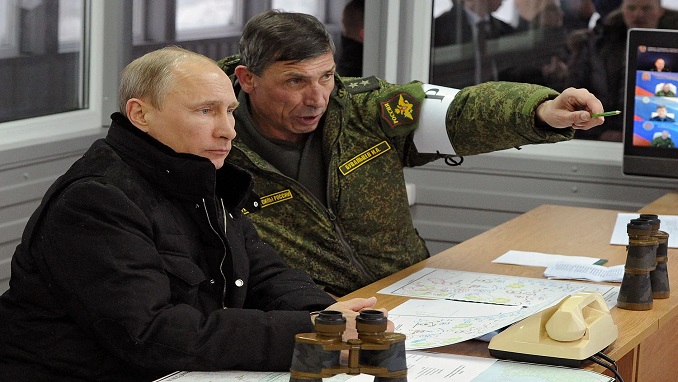In an interview published on Sunday in Russian media, Russia’s President Vladimir Putin said that Russia is ready to negotiate with all parties involved in the war in Ukraine and that he was ready to pursue acceptable solutions, but that Kyiv and its Western backers have refused to engage in talks.
Putin said that while Moscow is committed to its goals, it would negotiate if Ukraine came to the table.
In the past, the Russian president was pointing out that Russia is open to negotiations but only on his terms, which means Ukraine should accept Russia’s annexation of four Ukrainian regions and bow to Moscow’s demands, which the West-backed Kyiv has made clear is unacceptable.
In his efforts to justify Moscow’s 10-month offensive in Ukraine and undermine Ukraine’s sovereignty, Putin used the concept of “historical Russia” and said their offensive in Ukraine is being carried out to unite the Russian people.
He pointed out that Russia was acting in the right direction in Ukraine defending its national interests and the interests of its citizens because led by the United States, the West was trying to cleave Russia apart and it had no other choice but to protect its citizens.
Asked if the geopolitical conflict with the West was approaching a dangerous level, Putin noted that he doesn’t think it was so dangerous.
According to Mykhailo Podolyak, the adviser to Ukrainian President Volodymyr Zelensky, the Russian president needs to return to reality and acknowledge that it was Moscow that did not want any negotiations.
Underscoring that Russia single-handedly attacked Ukraine and is killing citizens, Podolyak said that Russia doesn’t really want negotiations, but only tries to avoid responsibility.
Previously this month, CIA Director William Burns cited in an interview the CIA’s assessment that Russia is not yet serious about a real negotiation to end the war.
While the US State Department did not immediately comment on Putin’s statement, the department spokesperson Ned Price told a regular news briefing in October that Washington sees such offers as posturing instead of a constructive, legitimate offer to engage in dialogue and diplomacy.
